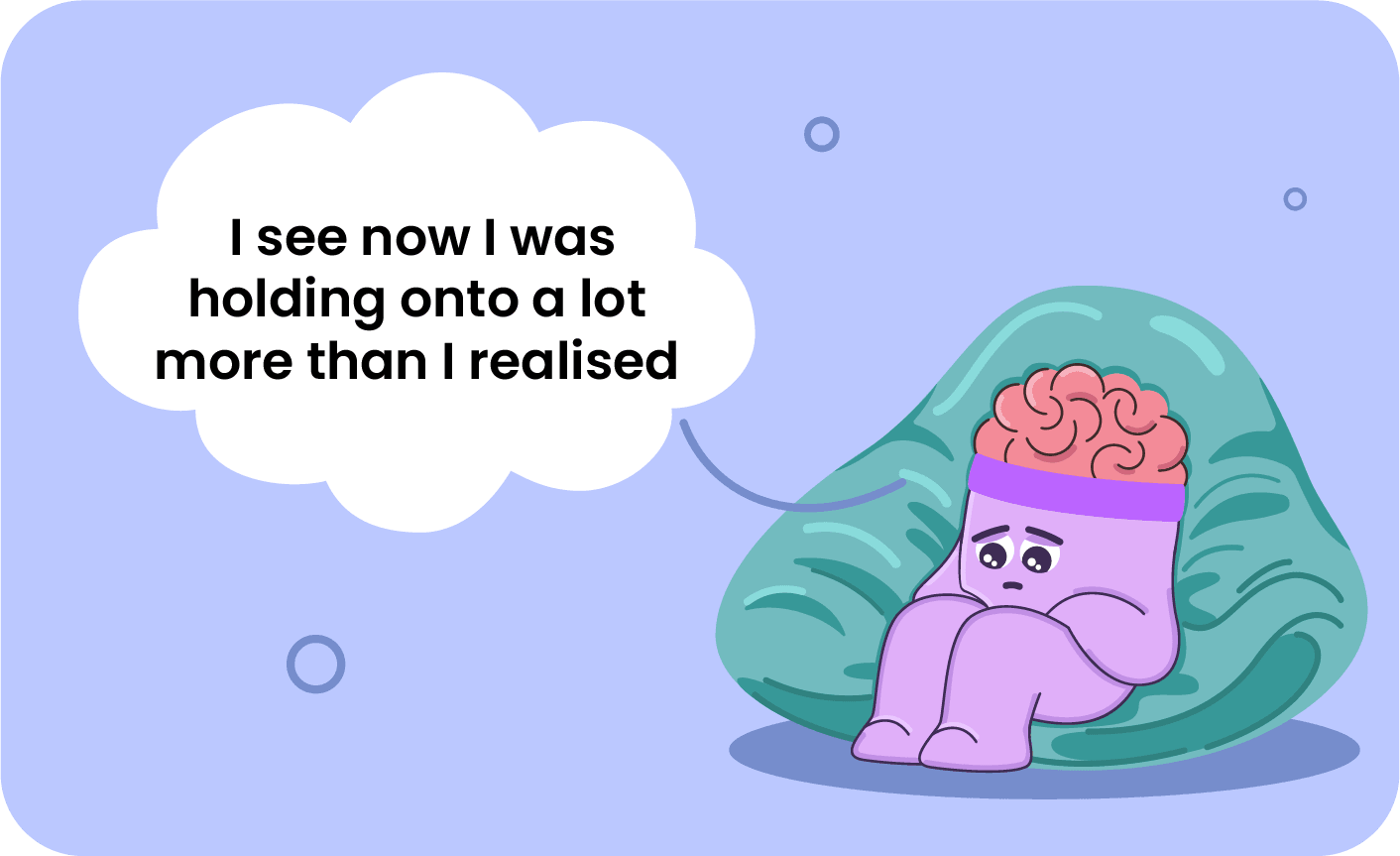Crying is a natural and healthy emotional response that we all experience at various points in our lives. However, sometimes we may find ourselves crying without an apparent reason, which can leave us confused and uncertain about why it’s happening.
If you’ve ever experienced this, then please know that you are not alone, and that even though they may not be obvious, there are actually several explanations for why you may be "crying for no reason". On that note, in this blog post, we'd like to share four common ones with you - as well as a few suggestions for what you can do to help process your emotions during the times when you do find yourself "crying for no reason".
Are you ready?
4 Explanations For Why People "Cry For No Reason"
1. You're Holding Onto So Many Difficult Emotions That They "Spill Out" In Unexpected Ways
When we experience difficult emotions such as sadness, anger or heartbreak, for example, it can be challenging to process and deal with them. Sometimes, we may try to ignore or suppress them, thinking we can deal with them later.
However, if we continue to hold onto these emotions, they may spill out unexpectedly, such as through crying. Our body may release these emotions to let go of the tension and pressure from carrying them for too long.
2. You May Be Crying for a Deeper Reason You’re Not Aware Of
Sometimes, we may cry because the thing that triggered us touches on something deeper that we aren’t consciously aware of. For example, if you experienced neglect as a child, and someone does “something small” that makes you feel seen - such as sending a cute text out of the blue that shows they’re thinking of you - then this may provoke a deeper reaction like crying because it’s filling an emotional need that wasn’t met when you were young.
3. You May Cry Because You Now Have "Space" To
If you’re holding onto many emotions and have been blocking them from coming out by distracting yourself or always staying busy, for example, then these emotions may begin to pour out when you have less on your plate or can’t distract yourself.
For example, this may be late at night when there's nothing to distract you, or when you’re on holiday. Having more space in our lives can give our emotions the opportunity to come to the surface and be released.
4. You're Expanding Your "Emotional Bandwidth" And Starting to Feel Things More Deeply
Sometimes, we cry because we are expanding our “emotional bandwidth” and starting to feel things more deeply than before. This may result from progressing through our healing journey, learning to get more in touch with our emotions, or experiencing a big life event like having a child, for example.
These experiences may lead us to feel things more deeply than we previously have, and therefore, may promote an influx of emotions that we may not have previously let come through.
Strategies To Help You Process Your Emotions If You Often Find Yourself “Crying For No Reason”
If you find yourself crying for “no reason,” then below, we'd like to share three strategies with you to help you process your emotions.
1. Set Aside Time To Allow Yourself to Feel
Schedule time to be without distraction or busyness, and allow yourself to sit in stillness. This allows your emotions to come to the surface and be released. Allow your mind to wander freely, observe what arises, and let it flow without judgment or resistance. If you’d like to write these feelings and thoughts during this time, then feel free to do so.
2. Write Your Feelings in a Journal
This can be an exercise you do with a blank page or document on your computer where you allow yourself to write anything that comes to mind without filtering it or checking your punctuation or grammar. This process of self-discovery allows you to increase your awareness of any thoughts or emotions that may need to come out.
3. Answer Journal Prompts On A Current Or Past Problem
Answering journal prompts that relate to a presenting problem or traumatic event from the past can give you a chance to open up this subject for inner discussion and healing, allowing you to work through the emotions and thoughts surrounding it.
Please note it’s important to be mindful of how hard you’re pushing yourself and ensure you’re not pushing yourself past a comfortable point. When exploring difficult events and emotions, we must be patient and compassionate with ourselves. Otherwise, the process can become overwhelming and put us off doing it again in the future.
On that note, below are a few journal prompts to help you get started:
- How is [insert traumatic event] impacting me today?
- What are some things I can do to help me heal from this?
- How can I feel more at peace with my life?
- What does my “inner child” need more than anything?
- What would I tell my best friend to do if it was them in this situation?
We really hope you've found this blog post helpful.
All our love,
The Depression Project Team.

